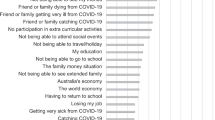Abstract
The marriage rate of cancer survivors is lower than that of the general population and their siblings. This appears to be attributable to negative images and stigma in society regarding cancer and cancer survivors. In order to improve images and decrease stigma regarding cancer and cancer survivors, this study aimed to develop an educational program that primarily focuses on dating and marriage after cancer diagnosis. The education program was conducted for university students, and among 67 participants who attended the education program, 61 participants completed a self-report questionnaire both before and after the program. The questionnaire included measures to assess reluctance to date or marry a cancer survivor, attitudes toward marriage and having children, and level of empathy. Scores on most items assessing reluctance decreased after the program; however, only three items showed a significant decrease: reluctance to date a cancer survivor if cancer recurred or metastasized, and reluctance if one’s family objects to dating a cancer survivor. Both before and after the program, disease severity was the main cause for reluctance to date. In addition, empathetic concern was associated with reduced reluctance to date or marry a cancer survivor, while conservative attitudes toward marriage were associated with greater reluctance which was a result of familial concerns regarding such relationships. Some of the reluctance could be attributable to sociocultural values in Asia, where the choice of romantic partner is likely to be subject to familial influence.
Similar content being viewed by others
Data Availability
The datasets during and/or analyzed during the current study are available from the corresponding author on reasonable request.
References
Sakurai N (2016) Cancer and marriage: report on unmarried cancer patient 1 [in Japanese]. J Jpn Soc Cancer Nurs 21:369–372
Rabin C (2018) Impact of cancer on romantic relationships among young adults: a systematic review. J Clin Psychol Med Settings 26(1):1–12
Ginter AC, Braun B (2017) Single female breast cancer patients’ perspectives on intimate relationships. Qual Health Res 27:1461–1472
Shaw LK, Sherman K, Fitness J (2015) Dating concerns among women with breast cancer or with genetic breast cancer susceptibility: a review and meta-synthesis. Health Psychol Rev 9(4):491–505
Fujisawa D, Hagiwara N (2015) Cancer stigma and its health consequences. Curr Breast Cancer Rep 7(3):143–150
Cho J, Smith K, Choi EK, Kim IR, Chang YJ, Park HY, Guallar E, Shim YM (2013) Public attitudes toward cancer and cancer patients: a national survey in Korea. Psychooncology 22(3):605–613
Tsuchiya M (2015) Lay beliefs, knowledge, and attitudes towards cancer: a pilot study in Japan. Asian Pac J Cancer Prev 16:3247–3251
Tanaka T, Kajimura A, Hayashida Y, Tanaka K, Takatsuji K (2012) People’s perception of cancer care and nursing, and expectations for medical staffs [in Japanese]. J Sch Nurs Osaka Pref Univ 35(1):47–57
Kawamura Y, Suketomo Y, Katanoda K (2010) Development and evaluation of a cancer education material for school-aged children: implications for cancer education [in Japanese]. Kumamoto Univ Policy Res 1:698–694
Tuinman MA, Lehmann V, Hagedoorn M (2018) Do single people want to date a cancer survivor? A vignette study. PLoS One 13(3):e0194277
MacDonald G, Marshall TC, Gere J, Shimotomai A, Lies J (2012) Valuing romantic relationships: the role of family approval across cultures. Cross-Cult Res 46(4):366–393
Bejanyan K, Marshall TC, Ferenczi N (2015) Associations of collectivism with relationship commitment, passion, and mate preferences: opposing roles of parental influence and family allocentrism. PLoS One 10(2):e0117374
Yi J, Kim MA, Sang J (2016) Worries of childhood cancer survivors in young adulthood. Eur J Oncol Nurs 21:113–119
Hashimoto A, Ikels C (2005) Filial piety in changing Asian societies. In: Johnson ML (ed) The Cambridge handbook of age and ageing. Cambridge University Press, Cambridge, pp 437–442
(2016) Guideline for cancer education with external lecturer in elementary, junior high, and high school students. [in Japanese]. Ministry of Education, Culture, Sports, Science and Technology of Japan
Yoshida K, Matsui Y (2018) Fertility-related experiences in adolescent and young adult cancer survivors in Japan. Psychooncology 27:80–80
Sakurai S (1988) The relationship between empathy and helping behavior in college students [in Japanese]. Bull Nara Univ Educ 37(1):149–154
Davis MH (1983) Measuring individual differences in empathy: evidence for a multidimensional approach. J Pers Soc Psychol 44:113–126
Kato M (2010) Cultural notions of disability in Japan: their influence on prenatal testing. In: Sleeboom-Faulkner M (ed) Frameworks of choice: predictive and genetic testing in Asia. Amsterdam University Press, Amsterdam, pp 125–144
Funding
This study was supported in part by the Foundation for Promotion of Cancer Research in Japan.
Author information
Authors and Affiliations
Contributions
Both authors contributed to the study conception and design. Material preparation, data collection, analysis, and preparation of the first draft of the manuscript were performed by KY. YM contributed to interpretation of data and assisted in the preparation of the manuscript. Both authors read and approved the final manuscript.
Corresponding author
Ethics declarations
Conflict of Interest
The authors declare that they have no conflict of interest.
Ethics Approval
The study was conducted with an approval from the research ethics committee of Human Sciences, University of Tsukuba (Approval No. Tokyo 30-62).
Consent to Participate
The participants gave their consent by answering the questionnaire.
Research Involving Human Participants
The study was approved by the appropriate institutional review board and was performed in accordance with the ethical standards as laid down in the 1964 Declaration of Helsinki and its later amendments or comparable ethical standards.
Informed Consent
The participants gave their consent by answering the questionnaire.
Code Availability
All statistical analyses were performed using BellCurve for Excel version 2.00.
Additional information
Publisher’s Note
Springer Nature remains neutral with regard to jurisdictional claims in published maps and institutional affiliations.
Rights and permissions
About this article
Cite this article
Yoshida, K., Matsui, Y. A Pilot Study for the Development and Evaluation of an Educational Program to Reduce Stigma Toward Cancer and Cancer Survivors: Focusing on Dating and Marriage After Cancer Diagnosis. J Canc Educ 37, 806–811 (2022). https://doi.org/10.1007/s13187-020-01885-0
Accepted:
Published:
Issue Date:
DOI: https://doi.org/10.1007/s13187-020-01885-0




